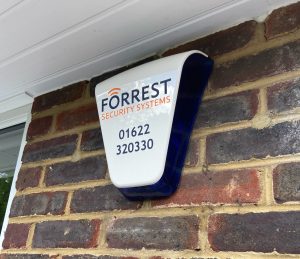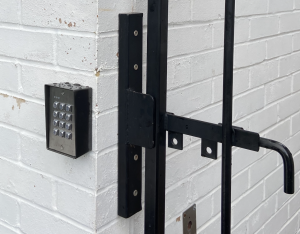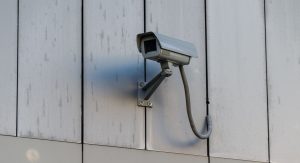Securing a home, whether in a bustling urban environment or a tranquil rural setting, presents unique challenges and requires tailored solutions. While urban homes face the risks associated with higher population density and increased anonymity, rural homes must contend with isolation and slower emergency response times. Understanding these differences is crucial in developing effective security measures. This blog delves into the distinct security needs of rural and urban homes and offers practical solutions for each setting.
Urban Home Security Challenges
1. High Population Density
Urban areas are characterised by high population density, which can be both a blessing and a curse. On one hand, neighbours are closer and can help keep an eye on each other’s properties. On the other hand, the increased number of people also means more potential intruders and less noticeable suspicious activity.
2. Increased Anonymity
Cities offer a level of anonymity that can benefit criminals. People are less likely to know their neighbours well, and unfamiliar faces are common. This anonymity can make it easier for criminals to scout and target homes without raising suspicion.
3. Higher Crime Rates
Statistically, urban areas tend to have higher crime rates compared to rural areas. This is due to a combination of factors including higher population density, economic disparities, and more valuable targets.
Urban Home Security Solutions
1. Surveillance Systems
Installing comprehensive surveillance systems, including CCTV cameras, can significantly deter criminals. Modern systems offer features like motion detection, remote monitoring, and cloud storage, making them highly effective.
2. Enhanced Locks and Entry Points
Investing in high-quality locks, reinforced doors, and secure windows is crucial. Consider smart locks that provide keyless entry and can be controlled remotely.
3. Neighbourhood Watch Programmes
Engaging in or starting a neighbourhood watch programme can enhance community vigilance. These programmes encourage neighbours to report suspicious activities and can significantly reduce crime rates.
4. Alarm Systems
Installing a robust alarm system that includes door and window sensors, motion detectors, and a loud siren can deter intruders. Modern systems can alert you and the authorities instantly via your smartphone.
Rural Home Security Challenges
1. Isolation
Rural homes often enjoy more space and privacy, but this isolation can be a security drawback. Fewer neighbours and greater distances between homes mean that suspicious activity is less likely to be noticed.
2. Slower Emergency Response
Emergency services typically take longer to respond to rural areas due to the greater distances they need to cover. This delay can be critical during a security breach.
3. Lower Crime Rates, But Higher Impact
While rural areas generally experience lower crime rates, the impact of a crime can be more significant due to the isolation and slower emergency response.
Rural Home Security Solutions
1. Perimeter Security
Implementing strong perimeter security measures is vital. Fences, gates, and even natural barriers like hedges can help deter intruders. Consider adding motion-activated lighting around the property.
2. Surveillance Cameras
Surveillance cameras are just as important in rural areas as they are in urban settings. Ensure they cover all potential entry points and the perimeter. Remote monitoring capabilities are particularly useful for rural properties.
3. Secure Storage for Valuables
Given the isolation, it’s crucial to securely store valuables. Invest in a high-quality safe and avoid leaving expensive equipment or machinery outside.
4. Alarm Systems with Remote Monitoring
An alarm system with remote monitoring capabilities can be invaluable. In the event of a breach, you can be notified instantly, and the system can alert authorities. Choose a system with battery backup to ensure functionality even during power outages.
Common Security Measures for Both Settings
1. Smart Home Technology
Smart home technology can significantly enhance security for both urban and rural homes. Smart cameras, lights, and locks can be controlled remotely and offer real-time notifications.
2. Regular Security Audits
Conduct regular security audits to identify and address vulnerabilities. This includes checking the integrity of locks, ensuring cameras are functioning properly, and reviewing security system logs.
3. Personal Safety Training
Regardless of location, personal safety training for all household members is important. This includes basic self-defence, emergency response protocols, and how to use security systems effectively.
4. Stay Informed
Keeping informed about local crime trends and security tips can help you stay ahead of potential threats. Join local community groups and stay engaged with neighbours.
Conclusion
Securing your home, whether in an urban or rural setting, requires a thoughtful approach that addresses the specific challenges and advantages of each environment. By implementing tailored security measures, you can enhance the safety of your home and provide peace of mind for you and your loved ones. Investing in quality security systems, engaging with your community, and staying informed are key steps in creating a secure home environment.








